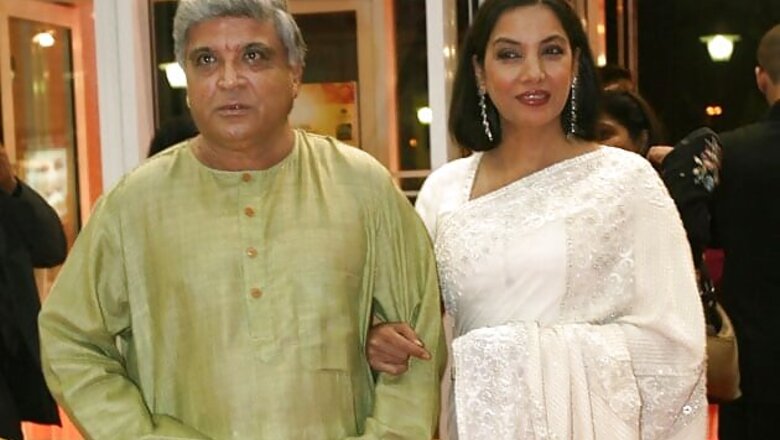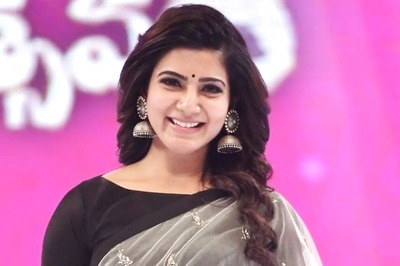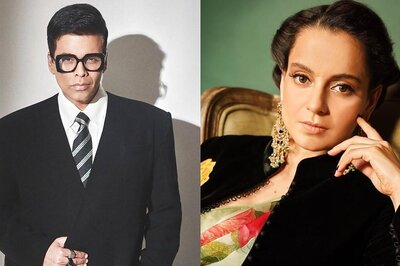
views
I can't call myself classy, it's for other people to say that. I can only say that this is what I have seen, this is what I have imbibed, and this is how I am. Class is intangible, almost indefinable. It is a summing up of the parts so that they become more than the whole. It has to do with dignity, subtlety, with a layered subtext where much more is expressed because it is hidden. It's got very little to with wealth and money, and much more to do with an attitude that comes from being comfortable in your own skin.
All of us, in certain situations, want to put on our best self. But it's when you're not doing it for public consumption that counts. Like eating. When I'm by myself and nobody's watching, do I gobble up my food? Do I eat it elegantly? Do I behave in the same way when there are people for whom I want to put my best foot forward?
My father was very classy. My husband is very classy. An unspoken aesthetic touches everything they did or do.
My parents have been the two most important anchors in my life; they taught by example. Both of them were public people with public personas, but they also had private personas not disconnected from the public ones.
My father was a member of the Communist Party. We grew up with eight families sharing one toilet. A 225-square-foot tenement was home. And yet my entire upbringing was peopled by intellectuals of the highest order: The biggest poets, writers, theatre people, some from film, the working class, all of that. The governor of Maharashtra would come in to meet my father, and a labourer without any chappals, and both would have access to the house. In retrospect — not then — for my brother Baba and I, money really wasn't the most important thing; there were other values which were greater. And that formed the kind of people we are.
I watch my mother a lot — I think she is a very classy lady — and I see that she dresses for the sheer joy of her own satisfaction; not for anybody's sake. The way she eats food, the way she orders food, the way she is — her very persona is that of an extremely classy person. There could be many others who have much more in terms of wealth who would not be able to do it.
And Javed has been a huge influence; we've been married now for 27 years. My mother says the UP mard is a different phenomenon altogether: Very high on propriety, on how you should behave with seniors, with adults, how certain words are not to be used with certain people, how any kind of crassness, even in humour, is not acceptable. In many, many ways, Javed is a lot like my father, because they have exactly the same kind of background.
I think most of us attribute class to people in high positions, to the rich. The more discerning of us realise that is not true.
To me, Lakshmi, whom I played in Shyam Benegal's Ankur, my very first film, is classy. She is a farmhand who gets seduced by the landlord. She accepts that position until finally she finds the guts to speak out against him. Her husband has abandoned her; she has to steal rice, and is caught by the landlord's wife. And to prove that he has nothing to do with Lakshmi, he really screams at her, humiliates her in public. She walks away, with just a look, which really skins him. To me that's a classy act.
And Jamini, the role I played in Khandhar, is a young woman with absolutely nothing to look forward to. Her mother is blind and paralysed, and Jamini knows there's not a chance in hell she's going to get married. Someone who has promised his hand to her has disappeared and she knows he will never come back, but the mother lives in hope. Along comes a man, played by Naseeruddin Shah, and the mother presumes it is that boy who has come back. And she says, you will marry her, will you not? And he gets pushed into saying yes. Despite herself, it ignites hope in Jamini. She could have clung to him, because she was really, really desperately lonely. But she knows the man has been pushed into that situation, and though she would very much want to be with him, she lets him go. She is really one of my favourite characters: She could quite easily have become a victim, but she conducts herself with such dignity. It's really poignant, deeply moving. That's such tremendous class.




















Comments
0 comment